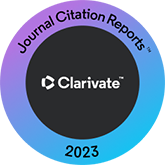‘Arab Stones’. Rodrigo Caro 's translations of arabic inscriptions in Seville (1634), revisited
DOI:
https://doi.org/10.3989/alqantara.2002.v23.i2.189Abstract
This article seeks to illuminate the problem of baroque translations of medieval Arabic inscriptions, in particular those provided by Rodrigo Caro in 1634 of inscriptions from Seville. The Sevillian inscriptions have been ignored by scholars since the nineteenth century when they were recognized as fraudulent. This paper argues that the content of these false translations was subservient to the context of their production -namely that of the translations of the Grenadine lead books, the baroque perceived ideal of a 'sacred antiquity', and the counter-reformation promotion and elevation of false martyrs and their relics. These were all elements of a conscious programme of invention of a ficticious but significant Christian past in Andalucía. The main protagonists in the Seville transtations—Rodrigo Caro, Pedro de Castro and Adán Centurión—were implicated in all of these processes as well as belonging to a Peninsula-wide network of antiquarian enthusiasts and forgers. Their critical judgement, when faced with evident frauds, was consumed by their will to promote specific religious and political agendas. Consequently, their shared translators, with their own agendas, obliged their patrons with capricious ammunition.
Downloads
Downloads
Published
How to Cite
Issue
Section
License
Copyright (c) 2002 Consejo Superior de Investigaciones Científicas (CSIC)

This work is licensed under a Creative Commons Attribution 4.0 International License.
© CSIC. Manuscripts published in both the print and online versions of this journal are the property of the Consejo Superior de Investigaciones Científicas, and quoting this source is a requirement for any partial or full reproduction.
All contents of this electronic edition, except where otherwise noted, are distributed under a Creative Commons Attribution 4.0 International (CC BY 4.0) licence. You may read the basic information and the legal text of the licence. The indication of the CC BY 4.0 licence must be expressly stated in this way when necessary.
Self-archiving in repositories, personal webpages or similar, of any version other than the final version of the work produced by the publisher, is not allowed.














